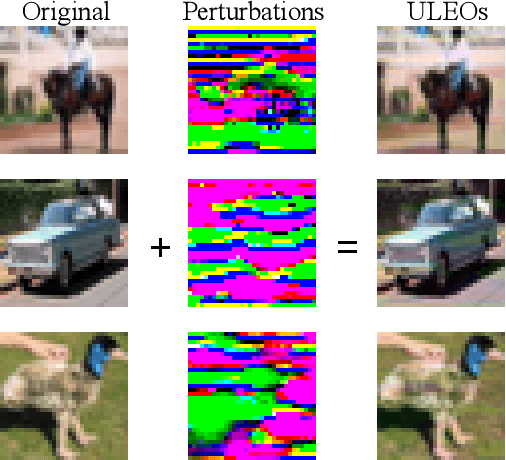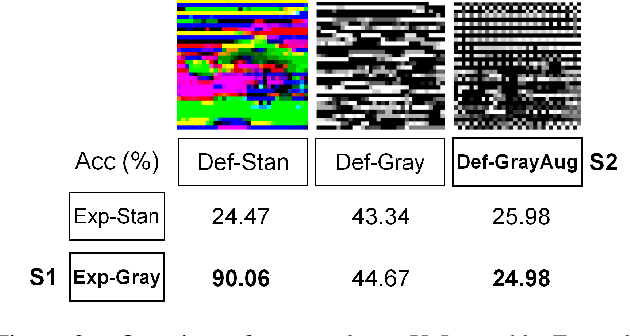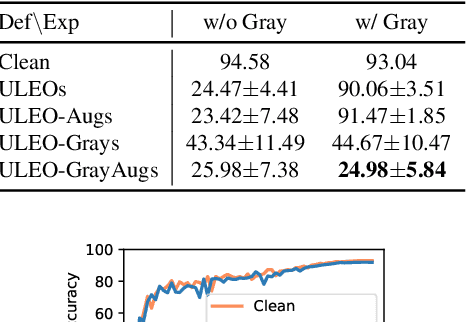Tijn Berns
Speaker and Language Change Detection using Wav2vec2 and Whisper
Feb 18, 2023Abstract:We investigate recent transformer networks pre-trained for automatic speech recognition for their ability to detect speaker and language changes in speech. We do this by simply adding speaker (change) or language targets to the labels. For Wav2vec2 pre-trained networks, we also investigate if the representation for the speaker change symbol can be conditioned to capture speaker identity characteristics. Using a number of constructed data sets we show that these capabilities are definitely there, with speaker recognition equal error rates of the order of 10% and language detection error rates of a few percent. We will publish the code for reproducibility.
Going Grayscale: The Road to Understanding and Improving Unlearnable Examples
Nov 25, 2021



Abstract:Recent work has shown that imperceptible perturbations can be applied to craft unlearnable examples (ULEs), i.e. images whose content cannot be used to improve a classifier during training. In this paper, we reveal the road that researchers should follow for understanding ULEs and improving ULEs as they were originally formulated (ULEOs). The paper makes four contributions. First, we show that ULEOs exploit color and, consequently, their effects can be mitigated by simple grayscale pre-filtering, without resorting to adversarial training. Second, we propose an extension to ULEOs, which is called ULEO-GrayAugs, that forces the generated ULEs away from channel-wise color perturbations by making use of grayscale knowledge and data augmentations during optimization. Third, we show that ULEOs generated using Multi-Layer Perceptrons (MLPs) are effective in the case of complex Convolutional Neural Network (CNN) classifiers, suggesting that CNNs suffer specific vulnerability to ULEs. Fourth, we demonstrate that when a classifier is trained on ULEOs, adversarial training will prevent a drop in accuracy measured both on clean images and on adversarial images. Taken together, our contributions represent a substantial advance in the state of art of unlearnable examples, but also reveal important characteristics of their behavior that must be better understood in order to achieve further improvements.
 Add to Chrome
Add to Chrome Add to Firefox
Add to Firefox Add to Edge
Add to Edge